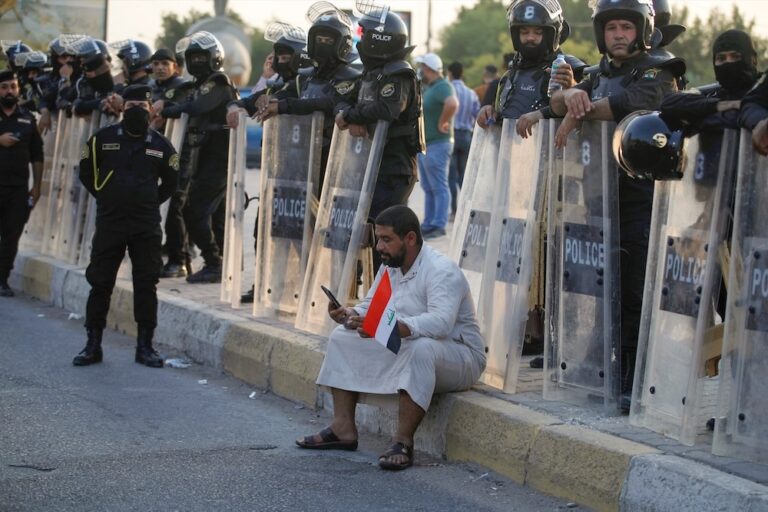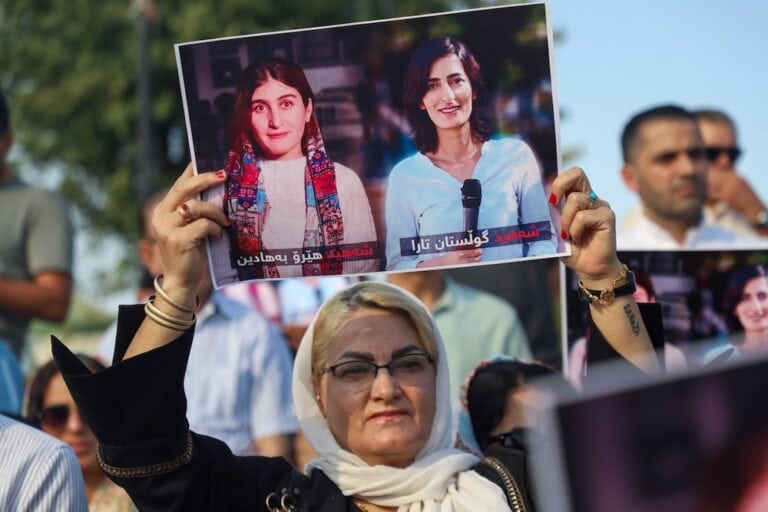(RSF/IFEX) – Reporters Without Borders has voiced deep shock at the murders of four Iraqi journalists by armed groups within a space of five days. The body of a local TV station employee was found in the boot of his car in the northern city of Kirkuk on 26 May 2007. A Turkmen journalist was […]
(RSF/IFEX) – Reporters Without Borders has voiced deep shock at the murders of four Iraqi journalists by armed groups within a space of five days. The body of a local TV station employee was found in the boot of his car in the northern city of Kirkuk on 26 May 2007. A Turkmen journalist was killed in Kirkuk on 28 May. Gunmen burst into the home of a journalism teacher and contributor to several media outlets in Amariyah, near Fallujah, on 29 May, killing him and seven members of his family. A Shiite journalist was fatally shot on 30 May in the southern town of Amara.
“The Iraqi authorities must fulfil their duty to protect journalists,” Reporters Without Borders said. “We call for the creation of a special force within the national police to identify the perpetrators and instigators of killings of journalists and to organise awareness campaigns about the protection of journalists for all the Iraqi security forces and for the public. To help the investigators, a witness protection programme should also be set up with the help of countries in the region.”
Police said the body of Aidan Abdallah Al-Jamiji, who was in charge of Kirkuk television’s Turkmen-language section and who was also a well-known local musician, was found on 26 May in the boot of his car, which had been torched and dumped near the cemetery in Kirkuk, 250 km north of Baghdad.
Mahmud Hassib Al-Kassab, the editor of the weekly “Al-Hawadith” and a member of Inkad Al-Turkman (the Turkmen Salvation Movement), was gunned down outside his home in the northern part of Kirkuk on 28 May. A local newspaper said he had been injured six weeks ago when a hand grenade was thrown at him in an apparent murder attempt.
Abdel-Rahman Al-Issawi, 34, a journalism professor at Baghdad university and contributor to several newspapers, was killed along with seven members of his family (including his wife, son, father and mother) when gunmen stormed into his home in Amariyah, near Fallujah, on 29 May and opened fire.
Nizar Al-Radhi, 38, an employee of the independent news agency Aswat Al-Irak (Voices of Iraq) and correspondent since last year for Radio Free Iraq, was fatally shot and several of his colleagues were wounded on 30 May when three gunmen in a pickup opened fire on a group of journalists who had gone to a news conference outside the city hall in Amara (365 km south of Baghdad).
In the Philippines, where six journalists were killed last year, the authorities have created a Task Force to handle crimes of violence against members of the news media. This specialised unit establishes a relationship with the families of the victims and protects people who come forward as witnesses.


